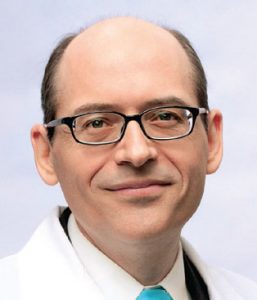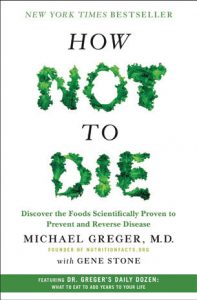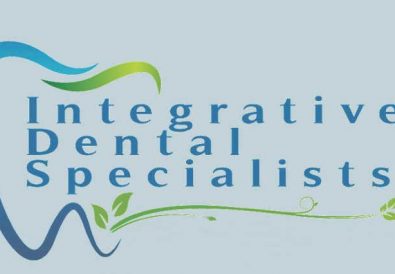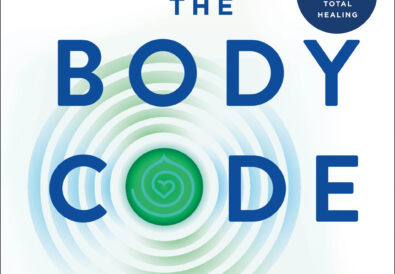Based on a study of more than one hundred thousand Minnesotans, it appears that seven out of ten people may be prescribed at least one prescription drug in any given year. More than half are prescribed two or more drugs, and 20 percent are prescribed five or more medications. All told, physicians dispense about four billion prescriptions for drugs every year in the United States. That’s about thirteen prescriptions a year for every man, woman, and child.
The two prescription drugs most often brought up in doctor visits are simvastatin, a cholesterol-lowering medication, and lisinopril, a blood-pressure pill. So a lot of drugs are being doled out in an attempt to prevent disease. But how well are these billions of pills working?
An overconfidence in the power of pills and procedures for disease prevention may be one of the reasons doctors and patients alike may undervalue diet and lifestyle interventions. When surveyed, people tend to wildly overestimate the ability of mammograms and colonoscopies to prevent cancer deaths, or the power of drugs like Fosamax to prevent hip fractures, or drugs like Lipitor to prevent fatal heart attacks. Patients believe cholesterol-lowering statin drugs are about twenty times more effective than they actually are in preventing heart attacks. No wonder most people continue to rely on drugs to save them! But the dirty little secret is that most people surveyed said they wouldn’t be willing to take many of these drugs if they knew how little benefit these products actually offered.
How ineffectual are some of the most common drugs in America? When it comes to cholesterol, blood pressure, and blood-thinning drugs, the chance of even high-risk patients benefiting from them is typically less than 5 percent over a period of five years. When asked, most patients say they want to be told the truth. However, as doctors, we know that if we divulged this information, few of our patients would agree to take these drugs every day for the rest of their lives, which would be detrimental for the small percentage of people who do truly benefit from them. That’s why doctors in the know and drug companies oversell the benefits by conveniently not mentioning how tiny these benefits actually are. When it comes to chronic disease management, practicing conventional medicine can be thought of as practicing deceptive medicine.
For the hundreds of millions of people on these drugs who don’t benefit, it’s not simply a matter of all the money spent and all the side effects endured. To me, the true tragedy is all the lost opportunities to address the root causes of patients’ conditions. When people dramatically overestimate how much their prescription pills protect them, they may be less likely to make the dietary changes necessary to dramatically lower their risk.
Take cholesterol-lowering statin drugs, for example. The best they may be able to offer in terms of absolute risk reduction for a subsequent heart attack or death is about 3 percent over six years. Meanwhile, a whole-food, plant-based diet may work twenty times better, potentially offering an absolute risk reduction of 60 percent after fewer than four years. In 2014, Dr. Caldwell Esselstyn Jr. published a case series of about two hundred people with significant heart disease showing that a healthy enough plant-based diet may prevent further major cardiac episodes in 99.4 percent of patients who follow it.
You don’t really have the luxury of choosing between following a healthy diet or taking a pill to prevent a heart attack because pills may not work in the near term in 97 percent of the cases. Of course, diet and drugs are not mutually exclusive, and many under Dr. Esselstyn’s care wisely continued to take their cardiac meds. You just need to have a realistic understanding of how limited a role the contents of your medicine cabinets play compared to the contents of your refrigerator. Heart disease may continue to be the number-one killer of men, women, and eventually our children if doctors continue to rely on drugs and stents. However, if you eat a healthy enough diet, you may be able to reverse the stranglehold it has on your heart. That is something doctors can be proud to divulge to our patients.
 A
A  founding member and Fellow of the American College of Lifestyle Medicine, Michael Greger, MD, is a physician, New York Times bestselling author, and internationally recognized speaker on nutrition, food safety, and public health issues. He has lectured at the Conference on World Affairs, testified before Congress, and was invited as an expert witness in the defense of Oprah Winfrey in the infamous “meat defamation” trial. In 2017, Dr. Greger was honored with the ACLM Lifestyle Medicine Trailblazer Award. He is a graduate of Cornell University School of Agriculture and Tufts University School of Medicine. His latest book How Not to Die became an instant New York Times Best Seller. He has videos on more than 2,000 health topics freely available at NutritionFacts.org, with new videos and articles uploaded every day. All proceeds he receives from his books, DVDs, and speaking engagements is all donated to charity.
founding member and Fellow of the American College of Lifestyle Medicine, Michael Greger, MD, is a physician, New York Times bestselling author, and internationally recognized speaker on nutrition, food safety, and public health issues. He has lectured at the Conference on World Affairs, testified before Congress, and was invited as an expert witness in the defense of Oprah Winfrey in the infamous “meat defamation” trial. In 2017, Dr. Greger was honored with the ACLM Lifestyle Medicine Trailblazer Award. He is a graduate of Cornell University School of Agriculture and Tufts University School of Medicine. His latest book How Not to Die became an instant New York Times Best Seller. He has videos on more than 2,000 health topics freely available at NutritionFacts.org, with new videos and articles uploaded every day. All proceeds he receives from his books, DVDs, and speaking engagements is all donated to charity.




















